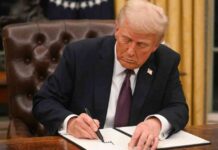China’s Struggle in the Chip War
In a recent phone call between Chinese leader Xi Jinping and President Joe Biden, tensions rose over Washington’s ban on the export of American advanced microchips to China. Xi warned Biden of the risks posed by these sanctions, but Biden stood firm in the interest of American national security.
The ban on advanced microchips has put China at a disadvantage in the global semiconductor market. While China has made strides in various sectors, including telecommunications and green energy, it still lags behind in semiconductor technology. American companies dominate the global chip market, with China holding only a small share.
Xi’s efforts to boost China’s semiconductor industry have faced obstacles, with U.S. export controls limiting China’s access to cutting-edge chip technology. These restrictions not only impact China’s economic development but also hinder its progress in AI and other emerging technologies.
Despite investing billions of dollars in developing a domestic semiconductor industry, China still struggles to compete with the U.S. and its allies in advanced chip manufacturing. Xi’s state-led approach has faced setbacks, including corruption scandals and concerns about technological innovation.
As China aims to achieve self-sufficiency in chip production, it faces challenges in closing the gap with global leaders in semiconductor technology. The ongoing chip war between the U.S. and China highlights the complexities of the global tech industry and the implications of geopolitical tensions on technological advancement.
Ultimately, Xi’s confrontational stance towards the U.S. may have hindered China’s technological progress and economic growth. By choosing to go it alone in the chip war, China faces the daunting task of building a self-reliant chip supply chain at a significant cost and with uncertain outcomes.
In the face of these challenges, China must reconsider its approach to technology development and consider the potential benefits of collaboration with international partners. Xi’s strategy of isolation may have unintended consequences for China’s long-term technological competitiveness and global standing.





















